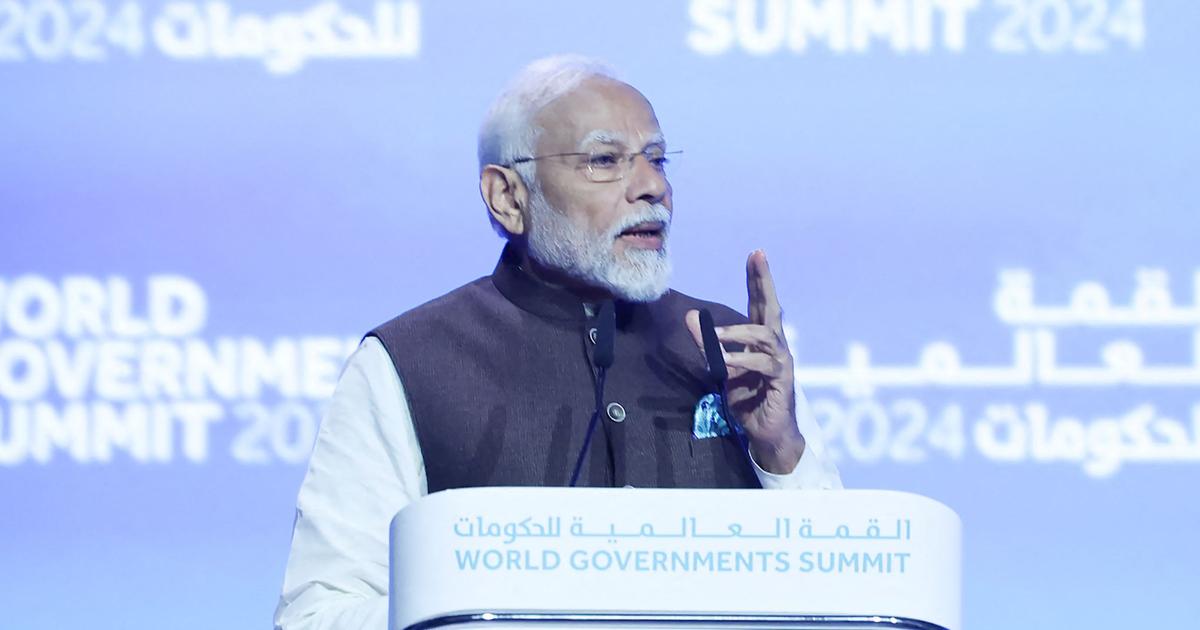weekly
Written by: Hao Yang Yang
2020-02-24 16:43
Last updated: 2020-02-24 16:44A government without income is just a "toothless tiger", and its revenue determines its expenditure. So what is the income structure of the Hong Kong Government? If the government's money-making has gone wrong, how do you expect her to use her money well?
Carry out the above:
[Financial budget] Repeat and repeat a budget already written?
[Budget] The political economy of repeating and sending money?
Unprofitable Government Needless Government Without Money Hong Kong Needs Tax Reform?
According to government data, profits tax (25.5%), land value income (22.8%), stamp tax (12.1%) and salaries tax (10.6%) together account for 71% of total government revenue in 2019/20. Among these major incomes, land price income has the most fluctuations. The post-return low was 5.4 billion yuan in 2003/04, the peak was 164 billion yuan in 2017/18, and the stamp duty was only 7.5 billion yuan in 2003/04. And rose to 95.2 billion yuan in 2017/18. An interesting comparison is that land premium income and stamp duty together account for about one-third of the Hong Kong government's revenue, which is more than three times the salaries tax.
Re-analyzing salaries tax data, in the 2017/18 tax year, only 49% of the working population were subject to salaries tax, and the remaining 1.96 million working population were exempt from salaries tax. Of the 1.87 million people who paid salaries tax, the top 5% (about 93,000) paid the most taxes, accounting for 66% of all salaries tax revenue. In terms of profits tax, only 9% of registered companies in Hong Kong are subject to profits tax, that is, about 1158,000 registered companies do not pay taxes. The top 5% of registered companies pay about 87% of the government's overall profits tax revenue.
Land price income and stamp duty account for one-third of the Hong Kong government's revenue, but few people ask whether it is healthy. (Photo / Zheng Zifeng)
As a consequence of Hong Kong's "simple low-tax system", there are not many people in society who pay taxes, and even fewer people pay high taxes. Feng Zhiqiang described this simple and low tax system as "love and hate". What he loved was that the government often talked about "can create favorable business conditions." What more ordinary citizens felt was that there was no direct tax. "Pain", after deducting 5% of your MPF monthly salary, it is the actual disposable income.
In other words, for the government, what really affects the thickness of her wallet is not most people in the society, or even most taxpayers who pay only a small amount of tax—after all, 39.1 is an annual salary of less than 300,000 yuan. % Salary tax The tax paid by the taxpayer accounts for less than 1% of the total salaries tax revenue—it is the upper classes of the society, real estate developers, and real estate speculators. Or because of this structure, the government is willing to repay taxes and rates from time to time, but is this tax structure healthy in the long run? Ironically, the exact cause and effect of this tax structure is the income brought about by the "deep contradictions" referred to by Qianfu in recent years, namely the land and property-related taxes that the Hong Kong government relies too heavily on-land income and Stamp duty.
"This is why Hong Kong is described as a real property state. She is similar to Singapore to some extent, but because she has a simple low tax system and is more dependent on land income, what will happen? She ca n’t build so many public housing. Singapore is real Property state, that is, she provides government financial support through real estate, but at the same time relentlessly builds a lot of "public housing" to appease the people, that is, HDB ... But Hong Kong cannot walk this set, which is why Hong Kong really It's super complicated. "
Chen Maobo lamented that there were a large number of applicants for "Paying 4,000 yuan". Will he push him to reflect on Hong Kong's financial structure? (Profile picture / Photo by Gao Zhongming)
Or no explanation is more meaningful than a "sigh" by Chen Maobo. He attended the radio show on January 26 and was again asked by the host if there would be "payment" or similar measures. Chen Maobo said that "Zhong Ye is tight." He later stated that under "Caring and Sharing" the previous year, the government had finally received more than 3 million applications. He lamented that the per capita income of Hong Kong people was so high that those who could not benefit from one-off measures such as tax rebate and rate rebate were worth 4,000 yuan. It turned out that there were so many. It is a phenomenon worth pondering. Chen Maobo's reflection is exactly the result of the above-mentioned tax structure—the government never levies taxes from the general public, but a small number of high-income people and enterprises, as well as income from land sales and stamp duty—the result is a narrow tax base. And housing issues. It must be explained that this structure is obviously not aimed at taxing low-income people, because purely in terms of income, the disparity between the rich and the poor in Hong Kong is too serious. We need to know that the current basic tax allowance is 132,000 yuan, and the average monthly salary is only 11,000 yuan. To tax them, we must first answer how to deal with their low income issues, otherwise it is not fair to them.
However, it is clear that as long as the government has sustained and considerable revenue from land sales, that is, the "structural surplus" mentioned above, the Hong Kong government has no incentive to reform the tax system. The only exception after the reunification was the "goods and services tax" levied by the government in 2006. In July 2006, the then Financial Secretary Tang Yingnian launched a consultation document entitled "Broadening the Tax Base, Promoting Prosperity, and Agreeing on the Best Plan", which stated that the purpose of tax reform was to "stabilize public finances and make Hong Kong's economy "Sustainable development to maintain our long-term prosperity" and stated clearly that "tax reform is not to increase tax revenue."
The government compared the tax structure of Hong Kong and the Organization for Economic Co-operation and Development (OECD) in the document, referring to Hong Kong's over-reliance on profits tax, property-related tax and non-tax revenue, and the large volatility of these taxes has led to government taxation Unstable. Coupled with the government's assessment that the proportion of Hong Kong's working population will gradually decline due to the aging population, it was estimated that the proportion of the working population in the total population in 2014 would drop to 51%, which would reduce salaries tax revenue in the long run. However, it must be pointed out that Hong Kong's working population has been growing slowly since 2006, with an overall increase of about 400,000 people, and only recorded a decline in 2010. As of 2018, the proportion of Hong Kong's labor force in the total population was about 52.7%, which shows that the ageing of the population is not as fast as expected in that year.
Although the aging population is not as fast as expected, it is still irreversible. When will the government comprehensively reform the retirement system? Until then, extensive discussion of public finances is truly responsible to the elderly. (Photo / Photo by Zhang Haowei)
Although the ageing of the population is indeed a foreseeable long-term issue, the "Broad Tax-Based New Tax Matters Advisory Committee" appointed by the government at that time has considered at least 14 plans, including the dividend tax, which is more talked about today, or The extra stamp duty that has been forced due to high property prices, and the less commonly mentioned "common tax on the income of businesses and individuals around the world." Feng Zhiqiang pointed out that there are several shortcomings in the introduction of the goods and services tax. The sales tax is regressive, that is, with the income of taxpayers, the actual tax rate they will bear will decrease. In other words, the sales tax will greatly aggravate the middle and lower classes. burden. Although the government proposes to provide relief measures to low-income families, these measures will incur more administrative costs. What's even more weird is that the government's stated goods and services tax can provide the opportunity to lower the profits tax. It can't help but doubt that the tax liability of only a small number of companies will be passed on to the middle and lower classes-of course to maintain Hong Kong because "Simple low tax system".
The tax increase plan for 2006 was finally shelved because of widespread opposition from society. In the whole social discussion, what is worth pondering is the political aspect of tax increase. Feng Zhiqiang mentioned that "the most funny" was that the government ’s tax increase measures even attracted community organizations associations concerned about low-income families to threaten judicial review, saying that it violated the provisions of the Basic Law on the low-tax system. The government's shield turned into an umbrella for the general public. "The" fun "place is that the government has to ask the citizens to" extend their hands to save money. "The citizens may not be easy going. Just like the government now invites people to participate in the independent review committee, how can you" buy your teeth when you ca n’t ask? " "You must die, you must die."
Hong Kong's fiscal structure is tied to public expenditure and overall development. Can Chen Maobo lead Hong Kong out of this deadlock? (Profile picture / Photo by Gao Zhongming)
With the popularity of the current government, it is almost impossible to expect that she can lead a tax reform towards fairness and justice. If there is no fair and just tax reform, the annual Budget seems to be doomed to a one-time "sugar distribution" and "money distribution". This is how Hong Kong pulls between a simple low tax system and responding to public opinion. "Death".
It ’s better to ask where the money comes from:
Politics does not return to finance How to talk about fiscal and political reforms?
As far as the tax system is concerned, the Hong Kong Government still has a lot of room for modification. Obviously, taxing capital is more in line with the principles of fairness and justice, such as asset value-added tax, dividend tax, and even taxation of income from enterprises and individuals in other places is quite reasonable and Taxes that are very common in the world, I believe that the general public is less likely to levy these new taxes. "Even in other places, but to make money back to Hong Kong, you don't levy taxes, many places levy ... just like you were born with a broken foot." Feng Zhiqiang reminded that although this is a legacy of the colony, most of it After independence, the British colonies have reformed the tax system on global income brought about by globalization. "The government's tax system is inherently disabled, and it is not infeasible. The problem is that to make it feasible, land must be sold, so it is strange to fill the sea. Island (referring to the artificial island of East Lantau). "However, the" simple low-tax system "is often emphasized. Governments that are too inclined to capital seem to be reluctant to follow this path. After all, the Tax Reform Commission in 2006 studied this topic, but in the end Rejected.
Hong Kong's tax and public expenditure system continues the colonial tradition. The people have never discussed democratically what we think is the ideal system. (Profile picture / Photo by Luo Junhao)
"In terms of fiscal politics, that is a dead end." Feng Zhiqiang specifically mentioned the example of American independence. Why was the Boston Tea Party asking for No Taxation Without Representation (that is, "No Taxation Without Representation") because the British government at that time imposed a tea tax on the colonial tea merchant bourgeoisie, "But if you ask him for money, he If you do n’t want to give it, you can give it, we can exchange it, change it one by one. This time let you increase taxes, but you also have to decentralize, otherwise why do you want to increase taxes? You need to get my consent. But The colonial history of Hong Kong has caused us to omit this part, because when colonizing, we have to omit the popular endorsement of the people's expansion, and then we will have to pay taxes today. You (referring to the government) force The people just authorize it, it's not really voluntary. "
"I think this is difficult to handle. The government does not delegate power. When the citizens do not feel that they can decide how to use the money, they will not pay too much because I hand it over to the government. The government uses it elsewhere. Will it be handed to you? "The last time the Kwun Tong District Council spent more than half a billion yuan to build a musical fountain on the waterfront of Kwun Tong is the best example. It is clear that many residents are opposed to this project. The district council meeting has decided to stop the project, and the government insisted on continuing to use the grounds of "respecting the procedures and contract spirit" and "cherish public funds." Feng Zhiqiang felt: "There is a big problem here. What do you say to the district council? Funding was used for her, and it was for her to decide on community matters, but this incident was once again exposed, in fact, that was a fake thing. "
Citizens are willing to enter the system, and the government is "administrative-led" bluntly, which is not beneficial to citizens' democratic participation and social democratic development. (Profile picture / Photo by Gao Zhongming)
District members enter the parliament through elections and have the power given by the public to make a decision to suspend construction. The government must be "administrative-led" rigidly and lack convincing justifications. The opaque attitude can not help but doubt this. Are there any benefits to be conveyed, completely revealing the "random use of money", methods of using money that are not in the interests of the general public, and decisions on using money. "It does n’t make sense to go in this way (referring to the district council). When everyone feels that there is no point in getting elected, and they are really determined to change something, they will not enter the system. Rarely they will enter the system. Although they have no confidence, it is rare that they are willing to continue to "play". You (referring to the government) are going to accompany them to "play". You must not "twist the meter" and say that you do not want to "play."
In order for citizens to truly participate in Hong Kong's fiscal reforms, it is necessary to deal with the political aspects of "finance and politics" and involve all citizens in debating the tax liabilities that most people are willing to bear and the public that most people authorize to support. The expenditure system allows the power of resource allocation to be truly determined by everyone. The fundamental question in this discussion should be: What is the principle of our taxation? Apart from supporting the government's public expenditure, is the current tax structure fair? In other words, what are the reasonable tax responsibilities of different social groups?
With reference to many economies in the world, Hong Kong actually has a lot of room to broaden its tax revenue sources. Letting citizens discuss together democratically can enhance citizens' sense of public financial responsibility. (Profile picture / Photo by Luo Junhao)
"I think the only way out is for the SAR Government to boldly decentralize its power." Feng Zhiqiang analyzed that although the government has always worried that power can be easily delegated and difficult to collect, in fact, at the same time, the public may regain trust in the system and the government. Of course, how to maintain Hong Kong's administrative-led political principles while decentralizing power is a test of those in power, and the general public will not come up with a perfect solution for them. "You ca n’t rebuild confidence with those measures of" spending money. "The government itself is very clear. In June and July (Last year), Lin Zheng spoke very accurately at the press conference. It's a matter of political trust. You, the citizen, will not give you (tax) if you do n’t trust it, you will rob it, and you will naturally resist it. There is no more useful and necessary condition than the citizen ’s self-cultivation of public financial responsibility. It is the citizens who have the right to make a decision. And this problem of decision-making-in fact, the biggest problem-if the people can make a decision, Hong Kong is not an authoritarian government. This is a test of the government's decentralization while maintaining its position, that is, It is difficult. "
When we look back at the fiscal history of Hong Kong after the reunification, today ’s problems have been planted back in the colonial period, and it is clear that we have missed the opportunity for gradual reform. In Hong Kong today, after the two storms of the Anti-Amendment Campaign and the new pneumonia epidemic, the trust between the government and the people is so small that it cannot be seen with a microscope. No one should think that the government will have the courage, courage and politics. Decentralize your wrists and carry out financial transformation in units of five or even ten years. So we went back and forth again and again to one-time measures such as "paying money" and "supplying sugar." Then we expected when she would not be able to withstand social pressures, and launched "top ten measures for people's livelihood" to repay the accumulated debt. "Public Finance Interest". Even so, society should focus on increasing the discussion of structural transformation from a fiscal perspective, and should not neglect to sacrifice Article 108 of the Basic Law "Hong Kong Special Administrative Region with reference to the original low tax policy implemented in Hong Kong" to negate all tax and public financial reforms worthy of discussion. Because it has been explained above, these oldly established provisions are likely to be unable to cope with the current social needs and the visible changes in the future. The Hong Kong Government will choose to face the difficulties and stay in place. Case, or she was awake, not brave enough.
related articles︰
[Budget. Depth] The wealthy "spend money"? Recognize the faction, you must be like it!
【pneumonia. Depth] Unpaid leave, 20% off food and two major deaths that cannot be saved by the Epidemic Fund
The above excerpt is from the 202nd issue of "Hong Kong 01" weekly report (February 23, 2020) "Repeat and repeat a budget already written? ".
More weekly articles: [01 Weekly Page]
"Hong Kong 01" Weekly is available at major newsstands, OK convenience stores and Vango convenience stores. You can also click here to subscribe to the weekly newspaper to read more in-depth reports.
01 Weekly report in-depth report 2020 Budget Budget Chen Maobo Hong Kong Economic Stamp Duty Tax Profits Tax Consumption Tax Extra Stamp Duty ﹙SSD﹚ Double Stamp Duty Rate Double Stamp Duty Tang Yingnian District Council







/cloudfront-eu-central-1.images.arcpublishing.com/prisa/3FI7KHR4GI7ABUOQDZ3ENWASZQ.jpg)







